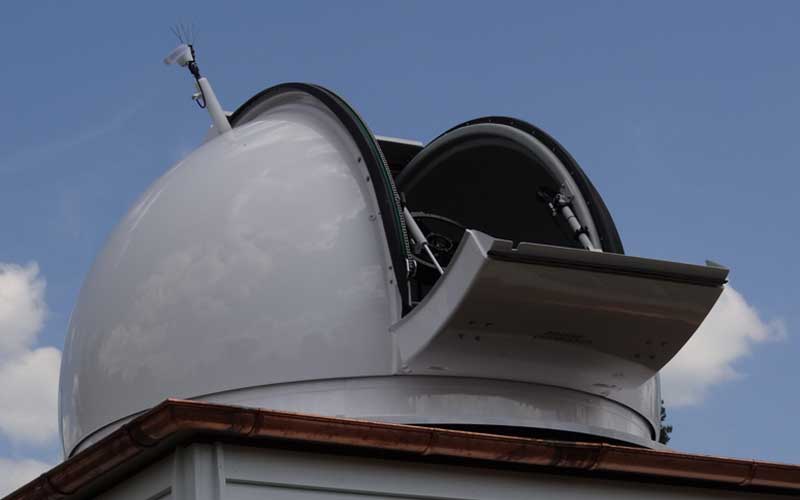
Heriot-Watt University has broken ground on the new quantum communications optical ground station in Scotland.
The Edinburgh City Council approved plans to build the optical ground station at the university’s Research Park on the outskirts of the Scottish capital in January. At the time, the university described the milestone as “its first major step towards creating a ‘space cluster’ at its Edinburgh campus.”
On 28 August, Heriot-Watt announced that it had officially broken ground to begin work on the £2.5 million Quantum Communications Hub Optical Ground Station (HOGS). The ground station will include a robotic observatory dome, a 70cm-wide observatory reflective telescope enhanced with adaptive optics, laser beacons, and two quantum receivers.
The National Quantum Technologies Programme is funding the project through the Quantum Communications Hub, one of five quantum technology research and innovation hubs that are being supported by a £160 million investment.
Once complete, the ground station will be used to test secure quantum satellite communications with the goal of preventing cyberattacks on critical infrastructure in Earth’s orbit. Additionally, it will also be ideally situated to track space debris in polar orbits for long periods of time. This sustained observation period may, according to the university, allow it to identify smaller debris targets.
“Satellites will form an essential part of future worldwide quantum communications, and in-orbit demonstrator missions are essential in proving the UK’s capabilities as a leader in secure quantum communications,” explained Professor Tim Spiller, director of the Quantum Communications Hub. “The ground-based receiver is clearly a key element of any mission, and we look forward to the Hub Optical Ground Station becoming operational at Heriot-Watt University.”
According to the university, the ground station is expected to be fully operational by late November 2024.

